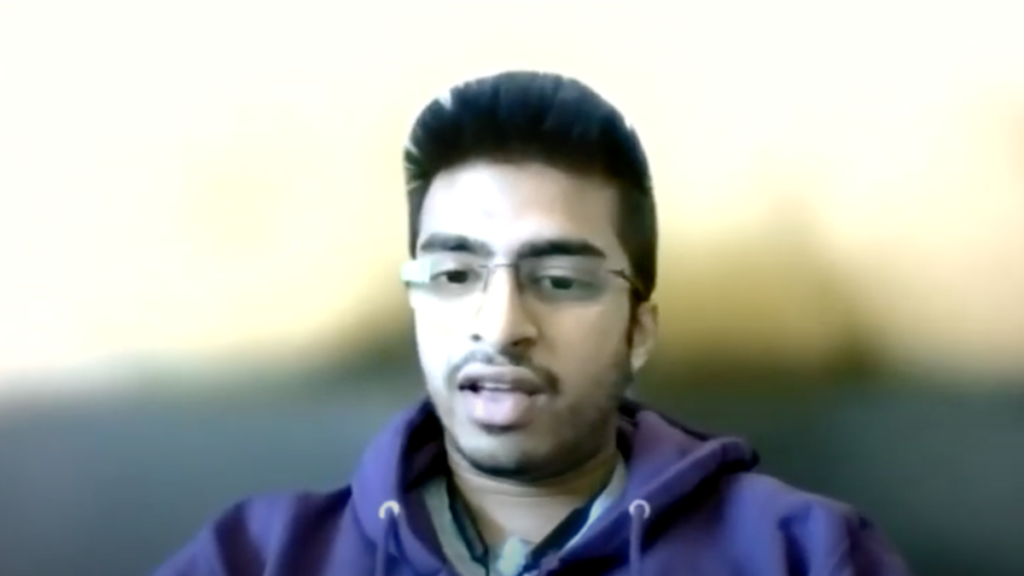This page covers:
- A brief overview of the Panel
- Finding and selecting panel members
- How the Panel worked
- How the Panel determined their priority issues
A brief overview of the Panel
The People’s Panel on health and care, a Citizen’s assembly of 100 people broadly representative of the British public, was set up by Engage Britain to deliberate on the challenges in health and care facing the country. And to decide which issues were the most important to tackle first.
Engage Britain worked with the Democratic Society, Involve and the Sortition Foundation to develop and run The People’s Panel on health and care.
Finding and selecting panel members
The Sortition Foundation ran a selection process to find people to join the Panel. Letters were sent to 30,000 households across Britain, selected at random from the Post Office database – the UK’s largest database of addresses – inviting them to express interest in participating.
The people who registered their interest were asked demographic questions. A random selection of these people were chosen for the Panel, so it broadly reflected the populations of England, Scotland and Wales.
This meant we had roughly the same percentages of people on the Panel as can be found in the whole population of the Britain, by age, gender, and ethnicity. We made sure that we had a balance of representation from the different nations, boosting the number of Scottish and Welsh participants slightly to make sure that we took into account the different experiences of health and care from those nations.
The Panel members reflected the range of political views across the country by having the same proportions of people who voted for the major parties at the last election, or who didn’t vote. Lastly, 10% of the Panel were from each of the 10 deciles on the Indices of Multiple Deprivation to ensure an equal mix of people from wealthier and poorer parts of the country.
Overall the 100-strong People’s Panel reflected the country in miniature.
How the panel worked
The People’s Panel met online over four weekends. There were three sessions each weekend, each lasting around two and a half hours.
As part of these sessions the Panel:
- Heard the stories, views and ideas that people shared in the Community Conversations, and shared their own
- Heard from speakers – including patients, carers, people living in care, health and care experts, and NHS staff
- Discussed issues with the other Panel members and weighed up what matters to people
- Decided next steps to solve the country’s health and care issues.
The sessions were designed and facilitated by the Democratic Society and Involve. In most sessions, the panel members were in smaller groups of six or seven people to allow for deep discussion of the issues.
Before each weekend, the Panel members also met in micro-groups of seven people for a more informal chance to talk, reflect on the sessions and build relationships.
Panel members were paid for their time (£450 in total) for attending all four weekends.
How the Panel determined their priority issues
At the end of each weekend, the Panel was asked to participate in a vote or prioritisation exercise:
- During the first weekend, the Panel was split into 15 groups and each group selected the issues in health and care that were most important to them, having shared their personal experiences with each other
- At the end of the second weekend, the Panel as a whole ranked the questions they most wanted to have answered by experts
- During the third weekend, each of the 15 groups in the Panel put forward two priority issues that they thought should be focused on
- Ahead of the fourth weekend, the Panel voted from this long list of issues to determine the seven issues they considered to be the most important
- After the fourth weekend, each member of the Panel ranked the seven issues in order they’d like to see them tackled.
Want to know more? Read our new paper, ‘Involving people in policymaking’, reflecting on The People’s Panel process.
You may also be interested in

Hear what happened on The People’s Panel in this three-part series, told through the voices of the Panel’s members and guest speakers… read more

Across their health and care sessions, we caught up with members of the Panel to find out how they found the process… find out more

Do you want to help improve Health and Care in Britain? Want to share your experiences and stories?… read more
